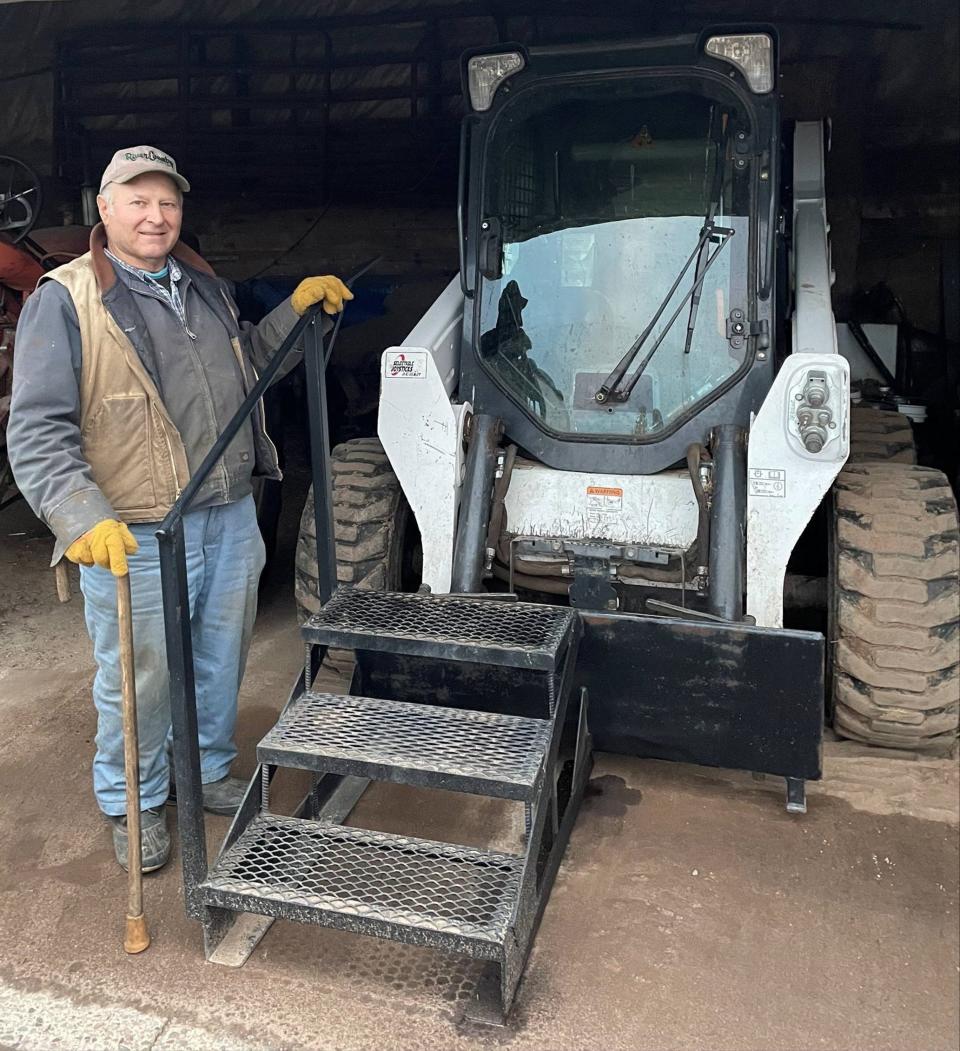State program helps people with disabilities remain in the workforce

When Scott Cebery experienced sudden pain in his lower back and legs, at first he didn't realize how much it would change his life.
But less than an hour later, the 51-year-old farmer from Price County lost the use of both legs. A hospital exam showed he had contracted Transverse Myelitis; a disorder caused by inflammation of the spinal cord.
"I was in bed when it hit me," Cebery said.
With therapy, he was able to regain enough strength to get around with a walker and then a cane. But farm work would be difficult because walking on uneven ground or in the woods where he had a logging operation was nearly impossible.
Still, Cebery, now 64, is able to take care of his herd of beef cattle and 185 acres of crops used to feed the livestock.
“You've got to do what you like to do,” he said.
He credits his ability to continue farming to help he received from the Wisconsin Department of Workforce Development. The agency's Division of Vocational Rehabilitation helps people with disabilities remain employed or find work.
Over the last five years, the agency says, it’s assisted around 100 farmers.
Cebery uses a utility vehicle provided by Vocational Rehabilitation to get around the farm and move cattle between pastures. He also has a skid-steer loader operated with hand controls for hauling equipment and feed.
“It’s hard for me to carry much of anything and walk,” he said.
Wisconsin's Department of Agriculture, Trade and Consumer Protection estimates there are about 39,000 farmers in the state with some type of physical limitation or disability. Some farmers might not consider a health issue as a disability even though daily tasks become increasingly difficult.
"We have adaptive technology that can help," said Amy Pechacek, Secretary-Designee of the Department of Workforce Development.
The assistance is available for all kinds of occupations, even office work where someone might need a hearing aid or an enhanced computer screen.
"We will come up with an individualized plan," Pechacek said.
When assisting farmers, the Division of Vocational Rehabilitation partners with the AgrAbility program, a collaboration that includes University of Wisconsin-Madison Extension, to assess needs and provide adaptive technologies.
Initially, Cebery said, it was a difficult decision for him to seek out help.
"I kept thinking everything would get better and I wouldn't need it," he said.
Still, "everybody had great ideas of things I had never really thought of, which really surprised me," he added.
There are limits on how much assistance the program can provide. It might offer to retrofit a tractor with hand controls, for example, but not replace the entire machine.
"We aren't going to build someone a brand new farm," Pechacek said.
The first step, for farmers or anyone else, is to reach out to the Division of Vocational Rehabilitation for a workplace assessment and consultation with medical professionals to determine what's needed. The agency has 42 offices around the state and can be reached by calling 1-800-442-3477.
There's no charge for an evaluation. You may be required to share the cost of some services but a counselor will address that in advance.
The agency's goal is to help people with disabilities, minor or severe, remain in the workforce.
"It's a great way to make folks more self-sufficient when they're facing hard times," Pechacek said. "We have gone in with some amazing adaptive technology."
More: M-Cubed program jumpstarts students' college and career success
Our subscribers make this reporting possible. Please consider supporting local journalism by subscribing to the Journal Sentinel at jsonline.com/deal.
DOWNLOAD THE APP: Get the latest news, sports and more
This article originally appeared on Milwaukee Journal Sentinel: State program helps disabled people remain in the workforce
